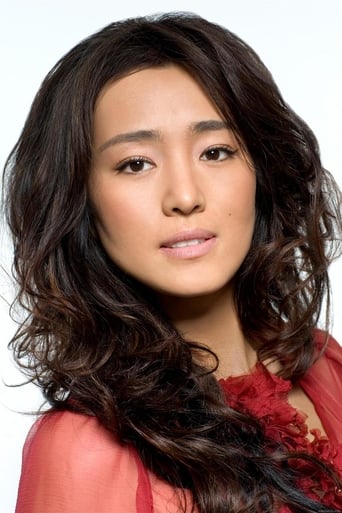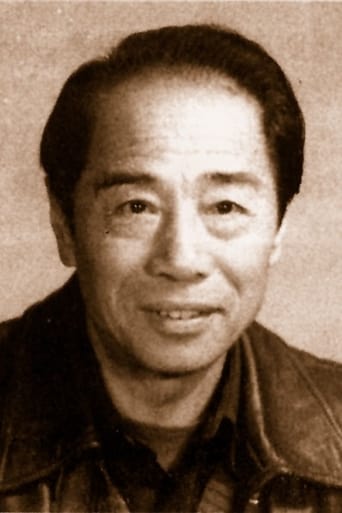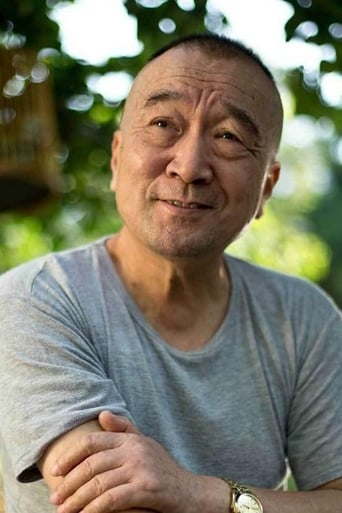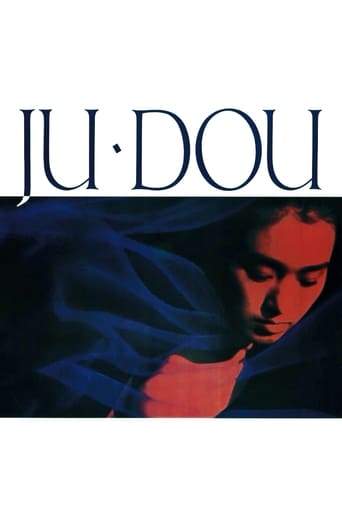
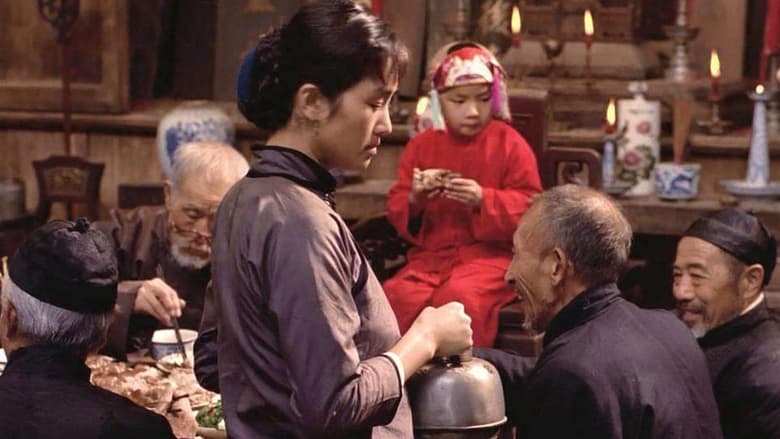
Ju Dou (1990)
A woman married to the brutal and infertile owner of a dye mill in rural China conceives a boy with her husband's nephew but is forced to raise her son as her husband's heir without revealing his parentage in this circular tragedy. Filmed in glowing technicolour, this tale of romantic and familial love in the face of unbreakable tradition is more universal than its setting.
Watch Trailer
Cast


Similar titles
Reviews
8 STARS - No Need To Understand Chinese - Ju Dou You don't need to understand a word of Chinese, even if you view this film in its native language without English subtitles. This story of a suffering Chinese wife in 1920s China who seeks sexual gratification outside of her impotent husband is a straightforward tale of passion. It is told in magnificent fashion via one beautiful shot after another by master Zhang Yimou. Gong Li, as always, is incomparable. Zhang uses the same formula with her that Carlo Ponti used with Sophia Loren, the large-breasted star of Italy, who was a great actress trapped in a super-sexy body. In Two Women, Ponti did everything he could to downplay Loren's natural assets: plain clothes, dirt on her face, and mundane surroundings. Zhang does the same exact thing with Gong Li and is successful. Ju Dou is not the best work of Zhang, but that is like saying The Birds or Psycho was not the best work of Hitchcock. This film is gorgeous and shot to perfection. Millions of women will identify with it. Highly recommended.
Throughout the story, I didn't really know what type of movie Ju Dou was supposed to be. It came off as an emotional drama, but at the same time, there were many instances of quirky humor that blended into the drama. However, the humor was very entertaining. The cinematography was quite beautiful, capturing the rural Chinese landscape. I also liked the in-depth look at Chinese society. The actors were all fairly good in their roles. The worst thing I have to say about this film would be the strangeness of it and also the slow pace of the beginning. I feel like the film spent too much time introducing the characters and not enough time explaining their situations.Overall, Ju Dou is an interesting film. It's not a classic or one that I will want to watch again, but parts of the film were entertaining enough for me to enjoy.
'Ju Dou' is a fine example of cinema at its rawest. Director Zhang Yimou hardly makes any use of special effects, keeps the background score at a minimum, makes the sets look very real (they don't even look like movie-sets) and yet he avoids his movie to look like a documentary. He seems to have relied most on the camera and actors to do the work. Even though the film is set in the 20s, 'Ju Dou' was one of the most controversial movies in China and it was banned arguably due to the way a powerful elderly man was depicted, a woman rebelling against a man and/or the depiction of injustice towards women in China and preference for a male heir.A natural beauty, Gong Li in her early days, plays the title role of a peasant girl who's sold to an evil old man. This couldn't have been an easy part for a young actress to play but Li makes it look otherwise. She is phenomenal to watch. Li Wei as the cruel master does a great job too and he adds a humanity to his character that makes us sympathize for him. Li Baotian, as the evil master's nephew with whom Ju Dou has an illicit relationship, is just as brilliant.The cinematography deserves special mention and some of the visuals and sceneries of the Chinese landscape are breathtaking. The writing is very good as the film sticks to the main story (no subplots) and the characters are rich, even that of the child who doesn't say anything. 'Ju Dou' does tackle a lot of issues (which is perhaps why it was banned) that are displayed graphically or hinted specifically. Also there's a lot of irony in the story that beautifully works. For example how the impotent evil master was once so intimidating that he tortured his previous wives to death but how quickly this turns around after Ju Dou gives birth and later on he sees hope in the child and uses him to vindicate his helpless state but that too has consequences. Yimou presents it all without throwing it at the audiences face.Apart from the aforementioned, there's a visually poetic feel about 'Ju Dou'. It's executed in a very artistic way. The way he shows the dye mill, (which looks like any other old overused mill), and then the colourful sheets of cloth make is dazzling to look at. Also the mountains and river are shot in such a way that they look like beautiful postcards. Then there's another shot of a beaten up Gong Li sitting next to a lantern while the flickering firelight reveals her sad face.I found the ending a little too abrupt. Perhaps Yimou should have developed this. Lastly, Yimou's intentions seem honest in the way he tells the story. He does not go over the top by including melodrama or making it preachy nor does he make it too simplistic. It's one of his finest works and some might find it difficult to watch but in the end it's a fine work of art that tells a relevant story.
Ju Dou is certainly an engaging enough film, because I like a filmmaker like Zhang Yimou who can be so fascinating with deep hues of colors in his costumes, sets, and cinematography. That's the way he tells his films' stories. And it's beautifully expressive, even in a grainy, lower- budgeted movie like Ju Dou.In its story of lustful vindication against a frightfully disgusting character, it can seem as if it's going in the wrong direction, sometimes disappointing the viewer's lustfully vengeful expectations for the movie's hero and heroine, but it should be realized that Ju Dou is a movie about passion vs. tradition, the emotional tempests people would go through under the businesslike customs and conventions of the time period.Ju Dou is worth seeing for its directors and writer's intuitive understanding of its drama and Gong Li's intense early performance. Hero and House of Flying Daggers are much more breathtaking than this early work of Yimou's, but for fans of emotional, romantic yet biting character dramas, and for fans of Asian cinema, I think you will be moved.


